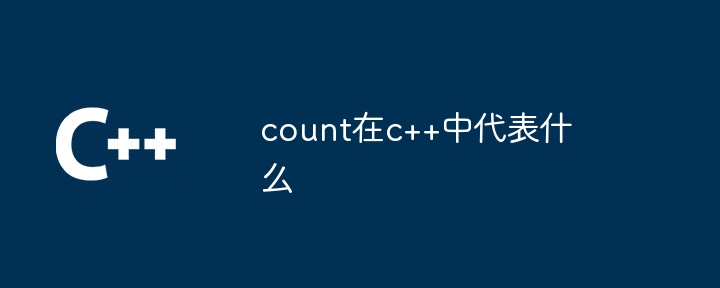Home >Backend Development >C++ >What does count stand for in c++
What does count stand for in c++
- 下次还敢Original
- 2024-04-26 16:48:13666browse
C The count function in the standard library is used to count the number of occurrences of a specific element in a container. It accepts the container range and the element to be found as parameters and returns the number of occurrences.

The meaning of count in C
In the C standard library, count is a generic algorithm, used Used to count the number of occurrences of a specific element in a container. It works on all containers that have the == operator defined, including vectors, sets, maps, etc.
Syntax
The syntax of the count function is as follows:
<code class="cpp">template <class It, class T> size_t count(It first, It last, const T& value);</code>
Among them:
- first and last is an iterator that defines the range of containers to be searched.
- value is the element to search for.
- size_t is an unsigned integer type that returns the number of occurrences of an element.
Usage
To use the count function, specify the start and end iterators of the container, and the element to find:
<code class="cpp">vector<int> vec{1, 2, 3, 4, 5, 1, 2, 3};
int element_to_find = 2;
size_t count_of_element = count(vec.begin(), vec.end(), element_to_find);</code>
The above example will count the number of times element 2 appears in vec.
Return type
The count function returns an unsigned integer representing the number of times the specified element appears in the container. If the element does not exist, returns 0.
Time Complexity
The time complexity of the count function is O(n), where n is the number of elements in the container. This is because count needs to traverse the entire container to find the specified element.
The above is the detailed content of What does count stand for in c++. For more information, please follow other related articles on the PHP Chinese website!

